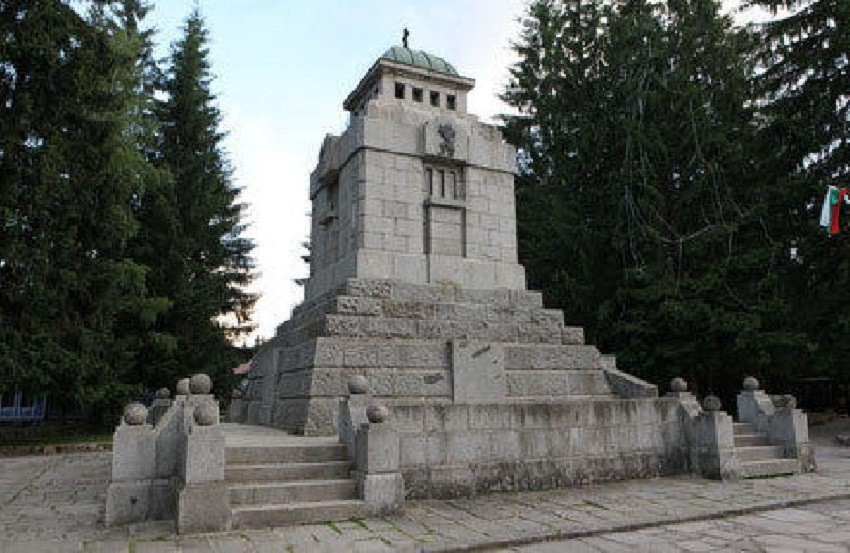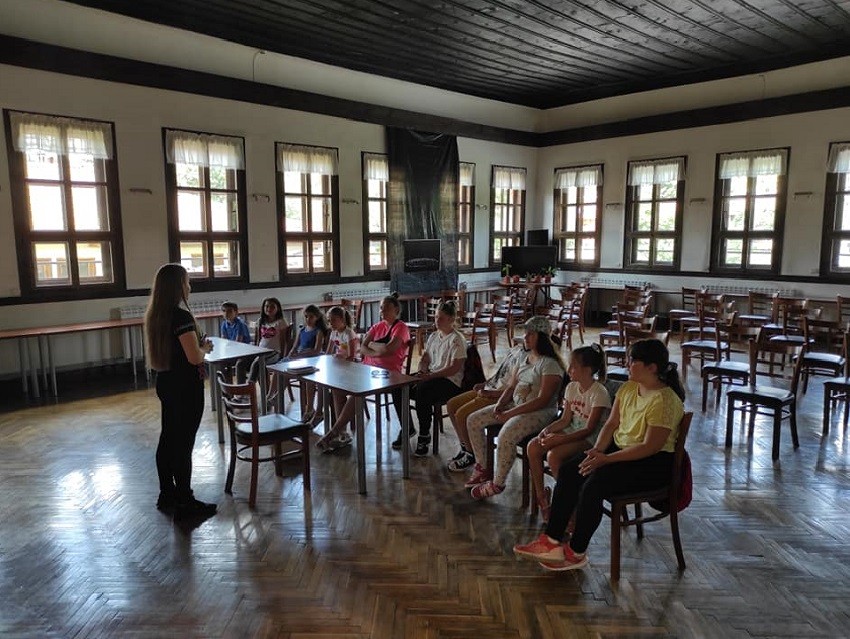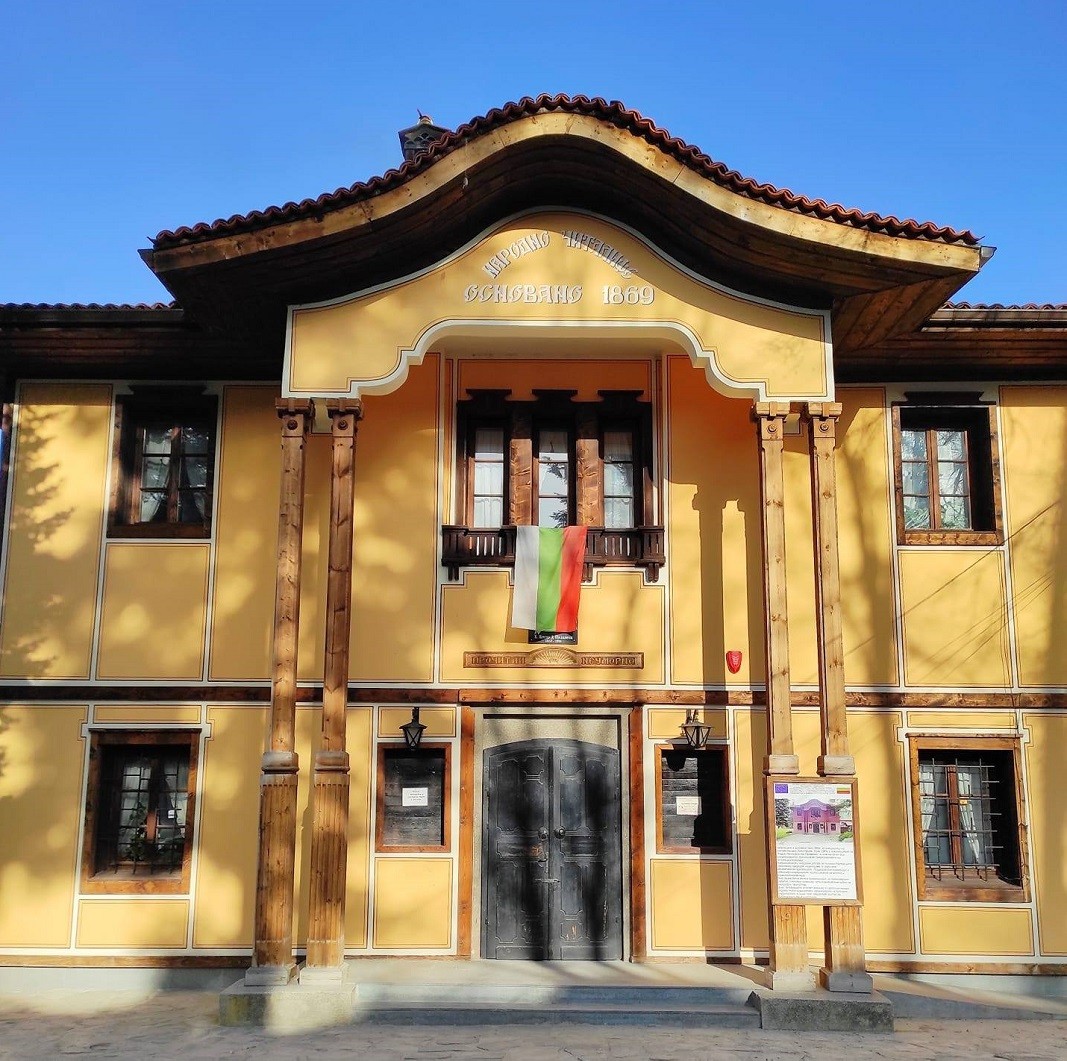The turn of the 20th century was a difficult time, a time of uncertainty. A time when many Bulgarians sought a livelihood outside the bounds of the country, while those who were more enterprising invested time and effort to start a trade, and made their fortunes. One example of commercial success, of giving and of love of one’s country from that period is Hadzhi Nencho Palaveev, now dubbed the Benefactor Theof Koprivshtitsa.
He was a merchant in the port-city of Alexandria. Thanks to his skills and his experience, and because he was fluent in six languages, he established commercial ties with Egypt, Arabia, Sudan and England in the years prior to WW I. But he set aside a significant part of his profits to benefit his home town of Koprivshtisa.

In 1908 he sent 40,000 golden Leva so that a chitalishte (culture community centre) can be built in the town, he financed the construction of a bell tower for one of its churches, he paid for the repairs of the local school, and raised an ossuary-monument to the heroes from the April uprising (1928), today a symbol of Koprivshitsa.

But the biggest donations Hadzhi Nencho Palaveev made were for the local secondary school. He also helped appoint and support a teacher from Switzerland to teach French to the children of the town.
The people working at the chitalishte in our day have been making every effort to keep this fire burning. The man now in charge of the chitalishte is a software engineer and teaches application programming at the local secondary school. He learnt, from experience, that the only way public institutions can make any progress is if there are dedicated people working at them, people with a high sense of responsibility. Now, besides his work at the chitalishte, and as a school teacher, Stoyan Marinov is also deputy-chair of the municipal council in Koprivshtitsa.

“But it is not the institution that makes us what we are. It is up to us to try to change what a chitalishte is all about, or any other public institution for that matter,” says the young chairman of the Hadzhi Nencho Palaveev chitalishte.
“That takes up quite a lot of my time. When you have undertaken such a social responsibility, you need to strain your sense of responsibility to the maximum. I have been chairman for a little over a year, and I have been trying to make things happen. We now have more events but, because of the pandemic, our activities have mostly shifted online, and it is very difficult to work online. Last year was the first time we marked 1 November in an online environment. We had a whole week dedicated to the enlighteners, with each member of the chitalishte team choosing the role of a given national enlightener. The idea was, through word and deed, to go back to the ideals of the people who awoke and enlightened the nation.”

The chitalishte of Koprvishtitsa is among the few in the country with a building of its own, built on donations from Hadzhi Nencho. It has its own revenues which go to finance some of its activities. One of its major successes is the restoration of the cinema hall, closed for close to 40 years.
“Now, thanks to donations and to the municipality, we have restored the movie machine and the screen, and we have become part of the Master of Art festival,” Stoyan Pavlov says.
Photos: BGNES, Facebook /Hadzhi Nencho Palaveev chitalishte
In June 1878, after the 10 th Russo-Turkish war in a row, at the Berlin congress, the lands in the Balkans inhabited by Bulgarians were divided up into five. Northern Dobrudja was handed over to Romania. Serbia got the Sanjak of Niš. The lands..
The New Church Year begins on September 1. The month of September is the seventh month of the year according to the Jewish calendar. It is associated with a number of biblical events, which is why it was designated as the beginning of the Church New..
High in the canyon of the Rusenski Lom River lies one of the most impressive spiritual centers of Bulgaria. It is a complex of dozens of rock-hewn cells, chapels and churches carved on both sides of the river , which came to life in the 13th century..

+359 2 9336 661
